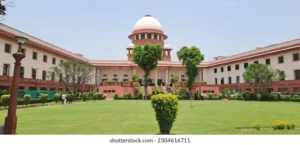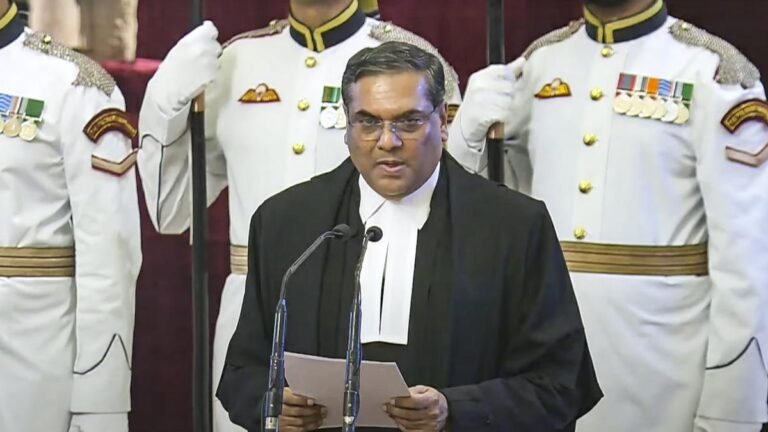New Delhi, November 11, 2024—Justice Sanjiv Khanna officially took over as the 51st Chief Justice of India (CJI) on Monday, following his predecessor Justice D.Y. Chandrachud’s retirement. Justice Khanna was sworn in at Rashtrapati Bhavan by President Draupadi Murmu, with Vice-President Jagdeep Dhankhar, Prime Minister Narendra Modi, ministers, and former and current judiciary members in attendance. His term will last until May 13, 2025.
Immediately after the swearing-in, Chief Justice Khanna proceeded to the Supreme Court to preside over his first day as CJI, hearing 47 cases in court one alongside Justice Sanjay Kumar. Justice Khanna has a notable legal legacy; in his previous courtroom, court two, hangs a portrait of his uncle, the legendary Justice H.R. Khanna, remembered for his defense of personal liberty during India’s Emergency period in 1977—a stance that ultimately cost him the role of Chief Justice.
Known for his commitment to personal liberty, Justice Khanna recently granted interim bail to former Delhi Chief Minister Arvind Kejriwal, calling personal liberty a “sacrosanct right.” He also pushed for a larger Supreme Court bench to review bail conditions in cases where government agencies arrested high-profile figures on serious charges. He has contributed to landmark judgments, including affirming the use of electronic voting machines (EVMs) over paper ballots, while cautioning against unchecked reliance on institutions.
In his five years on the Supreme Court, Justice Khanna has dealt with complex cases, including a high-profile 2019 sexual harassment allegation and petitions challenging secularism’s inclusion in the Constitution’s Preamble. He has also emphasized secularism as an integral part of India’s constitutional foundation.
As CJI, Justice Khanna faces challenges with judicial appointments, addressing case backlogs, and increasing technology use within the judiciary. He will lead the Supreme Court Collegium, which has vacancies to fill due to the retirement of Justices Hima Kohli and D.Y. Chandrachud, with more upcoming retirements in early 2025. Observers are watching to see if Justice Khanna will prioritize gender diversity by appointing a woman to the bench.
Justice Khanna will preside over pending Constitution Bench cases, including the high-profile Sabarimala temple entry case, which addresses the constitutional protection of essential religious practices, referred to a nine-judge bench in 2018.
A graduate of Delhi University, Justice Khanna began his legal career in the Delhi district courts in 1983, later practicing in constitutional, tax, environmental, and commercial law. He served as an Additional Judge of the Delhi High Court in 2005, became a Permanent Judge in 2006, and ascended to the Supreme Court directly from the Delhi High Court in 2019, bypassing the typical route of serving as a Chief Justice in a state High Court.
Justice Sanjiv Khanna’s brief but potentially impactful tenure is anticipated to shape India’s judiciary in significant ways, with observers closely following his leadership as Chief Justice of India.



















+ There are no comments
Add yours